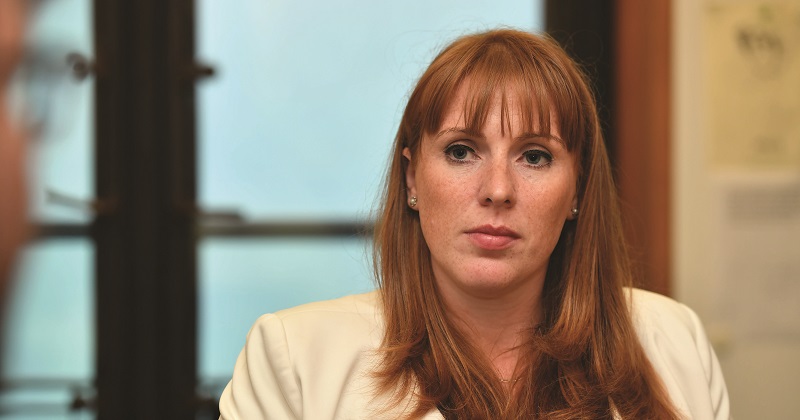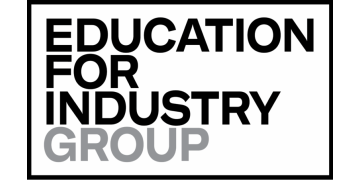A coalition of businesses and charities will be asked to help boost school readiness among young children by encouraging their parents to read and learn with them at home, the education secretary will announce today.
Damian Hinds will say that the government must address the “last taboo in education policy” – the home learning environment – if it is to tackle a lack of communication skills among reception pupils.
He will also announce a new ambition to halve the number of children starting school without the right speaking and and reading skills by 2028
The latest results for the early years foundation stage profile shows that 28 per cent of four and five-year-olds did not meet the expected level of language and communication by the end of reception in 2017. Hinds reveal today that he wants to see that cut to 14 per cent in ten years.
I know it’s parents who bring up their children, who love them, who invest in them in so many ways, who want the best for their children. But that doesn’t mean extra support and advice can’t be helpful
In a speech to the Resolution Foundation think tank, billed as his first major intervention on social mobility, Hinds will set out plans to have a coalition of “businesses, charities, tech companies and media groups” provide support and advice for parents “to read and learn words with their children”.
The new coalition, led by founder members the National Literacy Trust and Public Health England, will hold a summit later this year to come up with “practical ideas that boost parents’ confidence with supporting their child’s language and literacy from an early age”.
The gathering will look at simple solutions for busy parents to help their children with language and communication skills, including through awareness-raising campaigns and the use of technology. However, no new funding for the project has been announced.
“It is a persistent scandal that we have children starting school not able to communicate in full sentences, not able to read simple words,” Hinds is expected to say.
“This matters – because when you’re behind from the start you rarely catch up, your peers don’t wait, the gap just widens. This has a huge impact on social mobility.
“And the truth is that the vast majority of these children’s time is at home. Yes, the home learning environment can be, understandably, the last taboo in education policy – but we can’t afford to ignore it when it comes to social mobility.”
But the education secretary has “no interest” in lecturing parents, he claims.
“I know it’s parents who bring up their children, who love them, who invest in them in so many ways, who want the best for their children. But that doesn’t mean extra support and advice can’t be helpful.
“I particularly want us to be harnessing the power of technology. Whilst there are legitimate worries about screen time, media and modern technology can also help to raise awareness and build parents’ confidence around what they can do to help their child’s early language development.”
‘Achieving this won’t be easy’
Sir Peter Lampl, chair of the Education Endowment Foundation, said Hinds was “absolutely right” to “set an ambitious target for closing the early literacy gap by focusing on the home learning environment”.
“While achieving this won’t be easy, we know that all parents care about the future of their children,” he said.

But Angela Rayner, the shadow education secretary, took aim at the government, and criticised a lack of action to tackle inequalities between some of the most vulnerable pupils and their peers.
In 2017, 51 per cent of looked-after children reached the expected level of reading at key stage 1, while 39 per cent reached that level in writing. This compares with 76 per cent and 68 per cent of non-looked-after children respectively.
The inequality gap has also grown since 2010, from 23 percentage points to 25 in reading and from 27 to 29 in writing.
“These damning figures show that under this government inequality in our schools is rising, despite all their rhetoric on social mobility the Tories are simply entrenching inequality,” said Rayner.








We’ve been here before–parents who themselves have been badly failed by our schools are hardly in a position to take an active part in teaching their own children. Perhaps even more to the point is that the welfare state has been eroding parental autonomy for three generations and this has induced a sense of helplessness among the parents of the neediest children.
Damian Hinds is mad to suggest that technology can help–in fact, it has exacerbated an already desperate situation. He’d be better off looking to the work Prof Tommy MacKay has done in West Dunbartonshire, who proved that children from one of Britain’s most disadvantaged LAs could be held to the same standards of discipline as middle-class pupils, and subsequently introduced a rigorous synthetic phonics programme which has all but eliminated reading failure in all of the 34 primary schools in the LA.
On a much smaller scale, I worked with parents at Costessey High in Norwich during the late 1990s using scripted lessons to improve pupils’ spelling, and parents from social housing were among our most eager participants. They came into the school for one lesson per week, and took lesson plans home to use the other four school nights. Because pupils were taught in small groups matched closely for spelling scores, no one wanted to let the side down, and the results were so remarkable that I wrote them up for the Dyslexia Review. It’s amazing what you can do if you treat people with a bit of respect instead of just lecturing them and giving them digital toys.
It’s very important that carers talk, read and play with their children. But expecting them to read simple words before going to school (sometime between ages 4 and 5)?
School, not my parents, taught me to read. There should be no compulsion for children to read simple words before entering school. Formal reading tuition doesn’t start in some countries until age 7 and the children don’t seem to come to any harm.
Agreed that it’s pointless expecting children to have even the most rudimentary decoding skills before they start school, but the comparison with other countries is deceptive. In countries where formal schooling begins around age 7, the spelling code is transparent and easily mastered. Nearly all children in these countries start school with some understanding of the spelling code, if not actual decoding skills.
Schools have been increasing the amount of parenting they offer and consequently become accountable for. Brushing teeth with the Brush-bus, cycling safely, pedestrian skills, Bus-wise secondary ready bus training, sex and relationship, obligations to toilet train as illegal to exclude if not school ready, NHS fruit and vegetables for KS1, moral education, spiritual education, cultural education, British values the list goes on and on. What does it tells us about the states confidence in its supposed masters to raise their own children? An unintended consequence is as Tom wrote above without the need for the word welfare – erosion of parental autonomy by the state. This is what you should eat. These are your values. This is how you conduct your relationships. This is culturally acceptable. This is morally acceptable. This is spirituality. The state will take care of all of this for me. There are no consequences for my actions or obligations required from me.